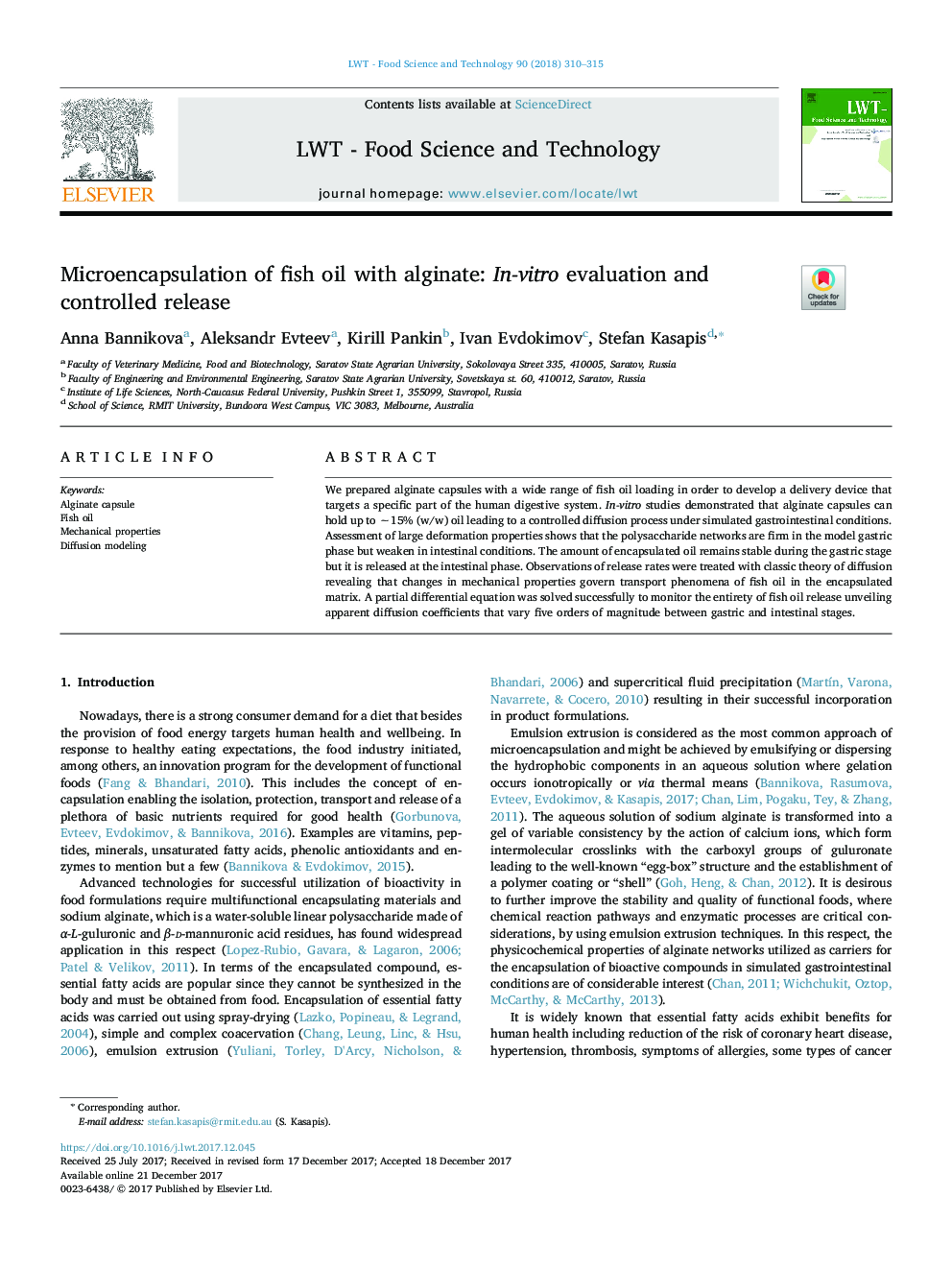| Article ID | Journal | Published Year | Pages | File Type |
|---|---|---|---|---|
| 8891609 | LWT - Food Science and Technology | 2018 | 6 Pages |
Abstract
We prepared alginate capsules with a wide range of fish oil loading in order to develop a delivery device that targets a specific part of the human digestive system. In-vitro studies demonstrated that alginate capsules can hold up to â¼15% (w/w) oil leading to a controlled diffusion process under simulated gastrointestinal conditions. Assessment of large deformation properties shows that the polysaccharide networks are firm in the model gastric phase but weaken in intestinal conditions. The amount of encapsulated oil remains stable during the gastric stage but it is released at the intestinal phase. Observations of release rates were treated with classic theory of diffusion revealing that changes in mechanical properties govern transport phenomena of fish oil in the encapsulated matrix. A partial differential equation was solved successfully to monitor the entirety of fish oil release unveiling apparent diffusion coefficients that vary five orders of magnitude between gastric and intestinal stages.
Related Topics
Life Sciences
Agricultural and Biological Sciences
Food Science
Authors
Anna Bannikova, Aleksandr Evteev, Kirill Pankin, Ivan Evdokimov, Stefan Kasapis,
